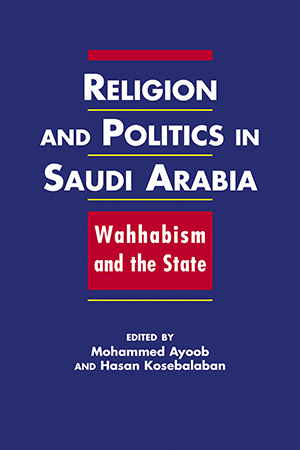
- 2008/189 pages
Religion and Politics in Saudi Arabia:
Wahhabism and the State
Hardcover: $65.00
ISBN: 978-1-58826-637-8
Ebook: $65.00
ISBN: 978-1-58826-997-3
Choice Outstanding Academic Book!
What is Wahhabism? What is its relationship with the Saudi state? Does it play a part in Islamist terrorist threats? These are among the complex questions tackled in Religion and Politics in Saudi Arabia. Moving from the historical, social, and political contexts in which Wahhabism originated and flourished to its current internal divisions and its impact on Saudi-US relations, the authors offer thought-provoking, cutting-edge research that helps to unravel the mystery that has long surrounded the subject.
What is Wahhabism? What is its relationship with the Saudi state? Does it play a part in Islamist terrorist threats? These are among the complex questions tackled in Religion and Politics in Saudi Arabia. Moving from the historical, social, and political contexts in which Wahhabism originated and flourished to its current internal divisions and its impact on Saudi-US relations, the authors offer thought-provoking, cutting-edge research that helps to unravel the mystery that has long surrounded the subject.





